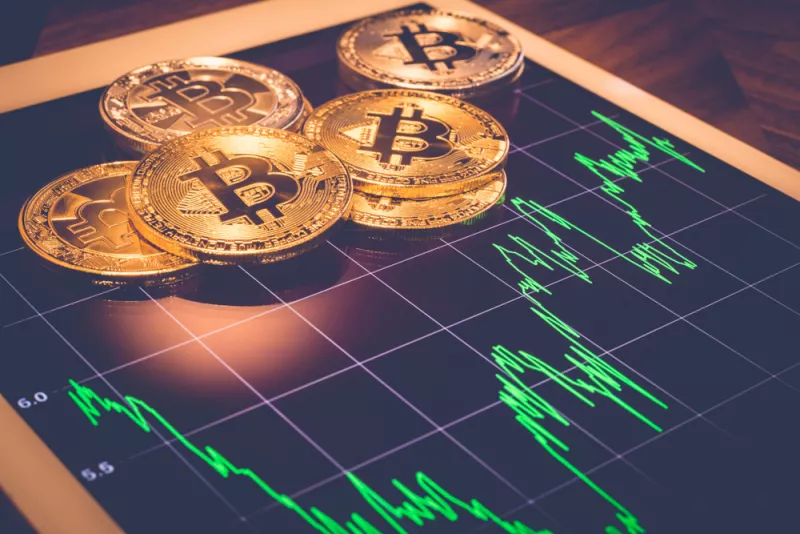TL;DR
-
In its recent report, Binance Research has pointed out that the ratio of the combined market capitalization of memecoins to altcoins has nearly tripled since 2022
-
97% of memecoins have already died (meaning near $0 trading volume).
Meme coins have become a crucial part of the cryptocurrency ecosystem. Binance Research, the research arm of the leading cryptocurrency exchange by market cap, investigated the meme coin ecosystem and its amazing growth over the past few years.
In a press release shared with Cryptowisser, Binance Research revealed that since 2022, the combined market capitalization of memecoins expressed as a percentage of Total 3 (the total cryptocurrency market capitalization minus BTC, ETH, and stablecoins) has almost tripled, going from 4% to 11% as of 2024.
However, this percentage is lower than it was in 2021 (12%), which was the year that saw $DOGE and $SHIB rocket to over US$80B and US$39B in market capitalization respectively.
Catalyst Behind the Surging Meme Coin Interest
According to the research, one of the major catalysts behind the rising interest in meme coins was the increase in global monetary supply during the COVID-19 pandemic. During the COVID-19 crisis in 2020, central banks globally increased the supply of fiat money at an unprecedented rate. Between 2020 and 2022 alone, the total global money supply increased by over 25% from US$81T to US$102 T.
The increase in money supply ultimately led to inflation, rates of up to 7% year-over-year (“YoY”) in 2021 and 6.5% in 2022 in the United States. With inflation in mind, investors flocked to invest their depreciating money into assets they perceived to have long-term value to avoid losing value via monetary inflation.
While traditional asset classes like real estate attracted massive investment, digital assets also began to attract attention from investors, especially the younger ones. 94% of crypto purchasers are of the Millennial and Gen Z generations, between the ages of 18-40.
GameStop Ushered in the Era of Meme Coins
According to Binance Research, the Gamestop Short Squeeze saga of 2021 reflected a shift in perspective among younger investors, who have begun to question traditional financial structures.
Memecoins may similarly resonate with investors for narrative and cultural reasons, driven by their symbolic value rather than traditional valuation metrics, like cash flow. The Gamestop saga demonstrated the capability of a financial asset to create a community and cultural movement, a phenomenon that likely drives a lot of memecoin activity as well.
The Memecoin Value Proposition
One of the primary value propositions for meme coins is the principle of fairness and transparency. Following the burst of ICOs, projects turned towards private VC funding rounds to raise capital. This practice has grown significantly in recent years, leading to an industry-wide ‘Low Float, High FDV’ problem.
A major project with private VC funding is that most of the new altcoins with the most exciting narratives and visions now face significant supply unlocks in the coming years, effectively turning retail traders into potential exit liquidity for VCs that got into early-stage private rounds.
Meme coins have shifted the narrative, adopting fairness and transparency during token launch. The 'meme' that altcoins may propagate could be the collective belief among token purchasers that the proposed technological roadmap will eventually be realized, resulting in a product with a strong market fit. This memetic element significantly influences the short-to-medium-term price movements of all cryptocurrency tokens. If current trends persist, memecoins may continue to grow in popularity and capture increasing interest within the cryptocurrency market.
Memecoins may also offer a more accessible narrative for everyday investors to buy into. The everyday, unsophisticated retail investor may much more quickly grasp the
principles behind a cute or catchy meme-driven coin instead of a technically complex new Layer 2 solution or DeFi primitive. In other words, the time-to-convert for a memecoin consumer may be much faster than that of a technology altcoin consumer. This implies that it may make the meme coin’s narrative faster to propagate throughout the pool of potential buyers, allowing them to build communities and drive speculation much faster than other altcoins.
Binance Research pointed out that capital flows into new memecoins faster than ever. $WIF took 104 days to go from US$0 to a US$1B market cap. $SHIB took 279 days. $DOGE took 8 years. New memecoins are being created faster than ever before as well. Due to their simplicity and accessibility, memecoins may spawn and proliferate faster than previous species of tokens.
Major Risk: Memecoins Have a Low Survival Rate
Despite their growing popularity, meme coins still pose a significant risk to investors. Binance Research pointed out that 97% of memecoins have already died (meaning near $0 trading volume).
While some memecoins have proven able to stand the test of time, namely $DOGE and $SHIB, which have perpetuated themselves for 10 and 4 years, respectively, the current survival rate remains remarkably low.
The rapid rate of growth and speculation makes memecoins an investment vehicle with high potential for outsized returns, but their heavy reliance on market sentiment, with little else to back them in the way of fundamental valuations, also makes them an extremely risky asset class with high risk of losses.
While one of the value propositions of memecoins is their enhanced transparency and accessibility, it is important to acknowledge that exploitation of retail traders still occurs within the memecoin market.
Certain groups (colloquially known as 'cabals') seek to exploit retail traders for exit liquidity by orchestrating memecoin pump-and-dump schemes. Although blockchains provide transparency, enabling users to see which addresses hold specific tokens, it remains challenging to ascertain the individuals controlling these addresses. Fresh addresses, controlled by a single entity, can be easily created to store tokens, misleading traders into believing that a token is widely distributed among numerous holders. Additionally, these cabals may compensate key opinion leaders for promoting a particular token to generate hype and speculation on social media and create the illusion of organic growth.
Memecoin Growth Hinders Technological Progress and Innovation
Binance Research also pointed out that an industry-wide over-allocation of capital and attention towards memecoins, which are largely not focused on progressing technological development forward, could reduce the overall incentives for skilled builders to join the space and build new products and innovative use cases.
Furthermore, while new memecoins can bring creative themes and narratives, the high number of similar tokens can lead to market saturation, making it important for projects to consider differentiation and long-term value.
With this in mind, Binance Research added that overcommitting time, effort, and capital to tokens that lack innovative technological or ideological advancements will inevitably lead to inefficiencies.
One might describe tech-driven altcoins as tokenized on-chain software businesses and memecoins as tokenized ideas and narratives - each might have a different appeal to different types of consumers.
In the long run, the most successful altcoins will need to create and perpetuate useful, sufficiently differentiated software products with real market fit. In parallel, the most successful memecoins may need to create and perpetuate differentiated, unique narratives and ideas that have long-term appeal to a sufficiently large group of consumers.
For teams building excellent projects, valuable insights can be gleaned from the memecoin phenomenon, particularly in community building and fair token launches. These aspects are important for any Web3 team to consider, as they are deeply rooted in the core principles of cryptocurrency — transparency, fairness, and decentralization.
Binance Research is the research arm of Binance, the world’s leading cryptocurrency exchange. The team is committed to delivering objective, independent, and comprehensive analysis and aims to be the thought leader in the crypto space. Their analysts publish insightful thought pieces regularly on topics related to, but not limited to, the crypto ecosystem, blockchain technologies, and the latest market themes.
 Hassan Maishera
Hassan Maishera






